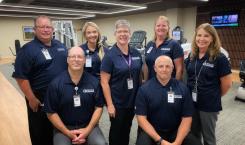Receiving a diagnosis of type 2 diabetes (T2D) often prompts questions like "Why me?" or "How did this happen?" It's not uncommon for individuals to experience feelings of guilt or shame upon learning about their condition, especially considering the common portrayal of T2D as a "lifestyle disease," implying personal responsibility.
However, the reality is far more nuanced, with numerous risk factors contributing to the development of T2D. Understanding these factors can help individuals process their diagnosis and alleviate any misplaced shame or guilt associated with it.
Common Risk Factors
Traditional risk factors, as outlined by organizations like the American Diabetes Association, include:
• Family history
• Race and ethnicity (certain populations have a higher risk)
• Age
• Lack of physical activity
• History of gestational diabetes or prediabetes
Additionally, living in a larger body is associated with an increased risk of T2D.
Social and Environmental Influences
Beyond these well-known factors, various social and environmental elements, medical conditions and health habits contribute to T2D risk. It's important to recognize that T2D typically develops due to a combination of these factors rather than a single cause.
Medical Conditions
Medical conditions such as insulin resistance, thyroid disorders, polycystic ovarian syndrome (PCOS), hepatitis C infections and fatty liver disease can increase the risk of T2D. Even conditions like COVID-19 are being studied for their potential impact on T2D risk.
Mental Health
Mental health also plays a significant role in T2D risk. Conditions like bulimia nervosa, binge eating disorder, schizophrenia, bipolar disorder and depression have been linked to T2D. Furthermore, medications used to treat these conditions can elevate glucose levels, making management more challenging.
Health Habits
Sleep is crucial for good health. Poor sleep quality or quantity, especially common among shift workers or those with sleep disorders, is linked to diabetes risk. Chronic stress and excessive alcohol consumption are also known risk factors.
Environmental Factors
Environmental influences, such as exposure to pesticides and herbicides, air and noise pollution and lack of green space, contribute to T2D risk. Social determinants like education level and income also play a significant role, with lower levels correlating with higher disease risk.
The Complex Reality
Diabetes is not a straightforward condition with a single cause. Rather, it arises from a complex interplay of genetic, social, environmental and lifestyle factors. Understanding how these factors interact can provide insight into the multifaceted nature of T2D and help individuals better manage their condition. It's essential to approach diabetes management with compassion, recognizing that it's not solely a result of individual choices but a product of various influences.
Understanding the complexity of diabetes empowers individuals to take proactive steps towards managing their health effectively and reducing the risk of complications.
Join MHCS and Mitch Rippe, Director of Nutrition and Education for the Nebraska Beef Council on April 16 at 5:30 pm. We will be discussing how beef can be a part of a heart healthy diet. RSVP now.










